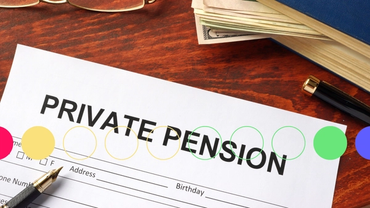Pension IHT Changes April 2027: What UK Retirees Must Know
By Boring Money
29 May, 2025
With the rules around Inheritance Tax (IHT) and pensions due to change in the next couple of years, many people approaching retirement - or already in it - are faced with a tricky decision: Do you need to change your estate planning strategy? And if so, what can you do to keep from landing your loved ones with a hefty tax bill after you've passed?

How are Inheritance Tax and pension rules changing?
Pensions have become a tax planning tool. Because of the IHT rules, they are often the last option for retirees when building their retirement income. The IHT rules are prompting me to rethink my retirement plan – should I take more income from my pension, for example, or should I buy an annuity?
I also wonder whether it might damage the long-term appeal of pensions. If the government is always tinkering with the rules, will people be as inclined to use pensions? Would people be better off saving more in ISAs? While there is lots of advice on the accumulation phase, no one seems to be thinking about the other end.
In her October 2024 budget, the Chancellor announced that from April 2027, pensions will form part of individuals’ estates for Inheritance Tax purposes. While this will affect relatively few people, those who are affected could face a significantly larger tax bill. But with the rules not yet finalised, it's important not to be panicked into hastily changing your pension plans.
Some history is important. In his pension reforms of 2014, then Chancellor George Osborne said investors no longer needed to buy an annuity with their pension savings. That opened the door to a range of ‘drawdown’ options, whereby retirees keep some or all of their pot invested and take an income from it.
For the first time, it also raised the possibility that there would be a pool of cash left in a pension at the end of a person’s life. At the time, Osborne said anything left in a drawdown pension could be passed onto descendants free of Inheritance Tax.
This created a useful tax planning wheeze. For the wealthy with pensions and a range of other assets to support themselves in retirement, they could leave their pension fund untouched and pass it on to their heirs tax-free. Pensions became almost like a type of trust and a key part of IHT mitigation.
This changed in last year's budget. The current Chancellor, Rachel Reeves, said that pensions would now form part of someone’s estate and therefore be subject to IHT.
It's important to note that this only applies to unspent pension pots. It won’t affect pension income already being paid - including the State Pension, final salary/defined benefit (DB)
pensions, or annuities. The rule change is targeted at pension capital, such as money invested in personal pensions (SIPPs) which has not yet been withdrawn or used to secure a guaranteed retirement income (e.g. an annuity).It also won’t affect the pension transfers between husbands and wives. All transfers between spouses will remain free from Inheritance Tax - more details on this here.
Do you need to rethink your retirement income?
The upcoming changes may prompt a rethink on how to handle your retirement income arrangements.
Previously, it made sense to hold off taking your pensions for as long as possible. Now, with pensions set to be treated just like all other assets – the family home, cash savings or investments – there's no advantage in waiting to take the benefits. In fact, it could be a costly mistake for some wealthier pensioners.
If this pushes estates above £2 million, it can take someone from having a low Inheritance Tax exposure to a high one. This is because the taper for the residence nil-rate band (RNRB) kicks in for estates over £2 million, which means taxpayers face the double whammy of Inheritance Tax on their pensions while also losing some or all of their residence nil-rate band too.
The residence nil-rate band is a valuable relief, adding £175,000 to the existing £325,000 nil-rate band when passing on the family home to close relatives (children and grandchildren). Losing it creates an effective IHT rate of 67% on a portion of pension assets.
What are your options?
You may be starting to look at taking more income from your pension to keep your estate under the threshold, or considering purchasing an annuity.
In contrast to when Osborne first introduced the pension changes, annuity rates are high - they're currently at levels not seen since 2008. Data from Sharing Pensions shows that its benchmark annuity rate is now £7,895 per year for a £100,000 investment.[1]
It's also possible to buy "term" annuities. These buy a guaranteed income for five, 10 or 15 years, and can introduce some flexibility into your retirement plans. A five-year term annuity, for example, would generate an annual income of over 20%. This means you don’t have to commit to an annuity with your entire pension pot and can reserve the rest for a drawdown approach instead.
Final thoughts
It's worth noting before making any changes to your retirement plans that, while there has been a lot of noise about the proposed changes, the rules are still in the consultation phase and the final details have not yet been announced. Retirees need to be wary of acting on partial information. AJ Bell says a full U-turn is unlikely, and it's currently lobbying the government to try and shape the legislation.
There’s a chance that they revise the way it’s implemented, which means it is very difficult to say at this stage what the most appropriate tax planning options will be.
Nevertheless, there are certain actions that are always sensible. Hayward says:
We are currently having lots of conversations with clients who want to know what they can do to mitigate against the announced Inheritance Tax changes, plus any further updates that may come at the Autumn Budget.
Many are looking at how they can effectively make gifts to family members or invest tax-efficiently to help reduce or eliminate IHT bills. Gifts you make to other individuals are generally not subject to IHT unless you die within seven years.
There is also an annual gift allowance of up to £3,000 per tax year, and this will not be subject to IHT even if you do die within seven years.
AJ Bell says investors may want to consider looking at their beneficiary nomination:
Under current rules up to April 2027, for a lot of families it might make sense to make their children the nominated beneficiary, rather than their spouse. That allows them to pass on their pension under the current rules if they were to die before April 2027, rather than the pension going to their spouse’s estate where it may be caught up in an IHT bill on the death of the second partner. Clearly that needs careful thought as you’d want to ensure the surviving spouse has adequate income in their name before making that decision.
For the time being, there's no hurry to act just yet. The rules are not yet finalised and may be softened before they come into effect. Nevertheless, if this shift is adopted in full, it would likely require a rethink for wealthier retirees.
---






